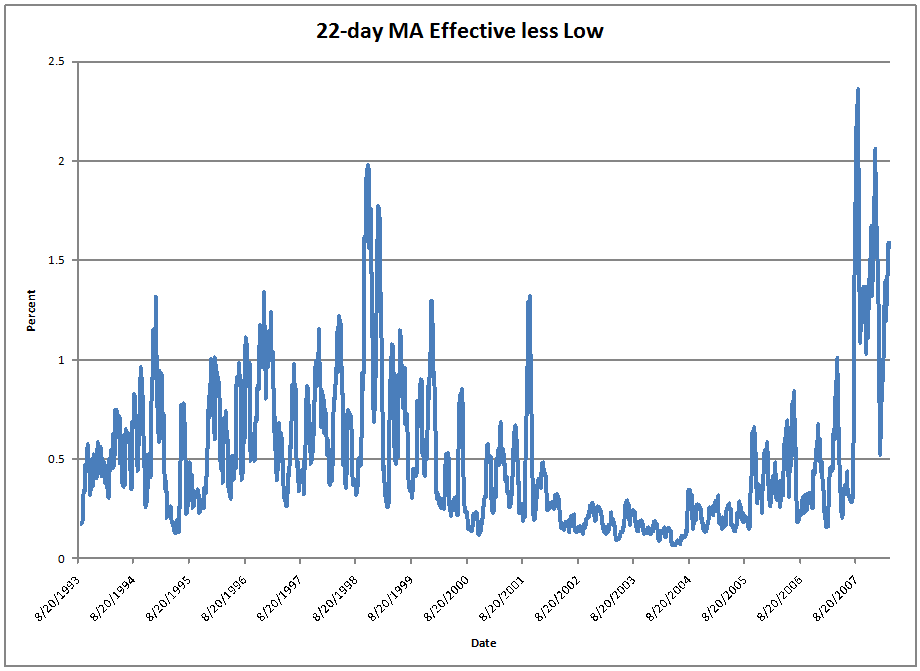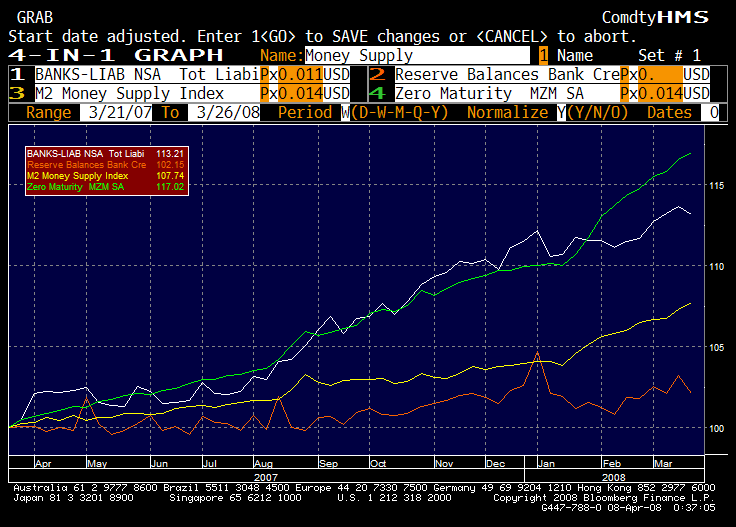Problems with Tax Reform
As I sit here, my taxes are done, all except for one K-1 that is very late, to put it mildly.? My taxes are complex, but my rule is that I do my own taxes.? If I can’t figure out the code, then I am probably doing something that I don’t understand the full economics behind it, and I should avoid it as a result.? Besides, it keeps me up with trends in the tax code that I might not truly grasp.? Surprises this year included the form for HSAs, and a credit? for promoting domestic production.? I also learned some of the intricacies in accounting for the sale of S corporation stock.? Not fun, but I learned something, and that is good.
It does motivate me to write a piece on tax reform, though.? I don’t fit neatly on the political spectrum: I’m a libertarian on economics, and a conservative on social policy (though conservative really isn’t the right word). Tax reform means different things to different people; let’s consider what it means to conservatives and liberals.
What does tax reform mean to conservatives?
- Eliminate the estate tax
- Eliminate the double taxation of dividends
- Eliminate the marriage penalty (actually should be a goal of liberals, and not conservatives, but hey…)
- Flatten the tax rate structure
- Preferentially tax income classes that aid in capital formation
- More taxation at the state level, less at the federal level
- Carve out exceptions for political allies that support your broad agenda
What does tax reform mean to liberals?
- Roll back the Bush tax cuts
- Keep the estate tax
- Increase the progressivity of tax rates
- More taxation at the federal level, less at the state level
- Preferentially tax wage income at lower rates
- Carve out exceptions for political allies that support your broad agenda
To me, both of them miss a dimension of the problem.? The main problem is how we define income, not the rate at which we tax income.? Both liberals and conservatives support areas in the tax code that allow for deferral of taxation.? To me, that is a core problem in the tax code.? Taxation should be roughly proportionate to the good that a taxpayer is deriving from society.? As a proxy for that, it should be proportional to his increase in net worth, whether the increase in net worth is liquid or not.
I will use Warren Buffett as my example.? Because he rarely sells stock, his taxes are deferred both personally, and at Berkshire Hathaway.? His net worth keeps going up, and the Treasury doesn’t get a piece of it.? Then he has the nerve to show up on Capitol Hill in favor of the estate tax, a tax of which his estate will pay little, because he has given most of it away.
My view is that people should be taxed like traders, on the increase in their net worth, at the same rate, regardless of where the income comes from.? Taxes would be paid on a mark-to-market basis.? There would be no more tax deferral IRAs or 401(k)s, and even pension earnings would get taxed inside DB plans.? Life insurance and annuities would lose their tax breaks.? Even charitable endowments would be taxed.? Private equity would get taxed off of “phantom income” at a 15% compounded rate, i.e., a private equity fund with $100 million in equity would have to pay taxes on $15 million of phantom income, at the fund if 15% distributions are not made to shareholders.? Truing up would occur at the dissolution of the fund.
Another key component here would be that there would be no separate tax accounting basis — the IRS would use GAAP.? What you report, is what you get taxed on, with the exception that firms that are heavily indebted to avoid paying taxes would get taxed on phantom income, the same as private equity.? Also, all like-kind exchanges would be taxed.? Even real estate would follow the property assessor, and income taxation would occur on the increase.
Then eliminate all deductions, conservative and liberal ones, and you have a tax code that can operate at a low rate because the entire increase of wealth in the economy is being taxed, without exceptions.? Oh, and since the income has been taxed all of the way up, the estate tax is no longer needed.? It was needed when wealthy people could shelter their increasing net worth from taxation.
Objections to this Outlandish Proposal
- Would you really allow investment losses to reduce someone’s income to zero, or below?? Yes, though there would have to be some safeguards against people who disguise their hobbies to be businesses.
- This will kill investment; the economy won’t grow without tax deferral!? Nonsense.? Most tax deferral incentives don’t change the amount of investment, but just the forms that the investments go into.
- Without tax deferral, people won’t buy life insurance, annuities, and corporations won’t provide pensions.? To some degree, yes, but after the shock wears off people will invest for maximum advantage again, and with an eye toward what is best, not what is tax-favored.? With my proposal, I don’t care if people have pensions or savings.? It’s all the same.? Life insurance and annuities will be bought for risk reduction reasons, not tax reasons.
- This will kill private equity!? It won’t.? It may shrink it a little, but there are many advantage to private equity aside from deferral of taxation.
- But phantom income will require illiquid investments to retain liquidity for taxes, or require equity holders to fund taxes.? Guilty as? charged.? It changes the business model to that degree.
- This discriminates against the poor in favor of the rich.? No, it discriminates against the clever rich, who shield the increase in their net worth from taxation.? Taxes delayed often become taxes avoided in entire.? Poor people should pay some taxes.? They benefit from society a little, and taxes would give them greater interest in voting.
- If there’s no deduction/credit for JKL, then JKL will disappear.? Good, or, maybe I should say, yes, there will be a decrease, but if it is valuable, it will find its own level.
- This proposal is incomplete!? You haven’t considered a lot of other areas.? No doubt; there would be a lot to do here, should it ever see the light of day.? Let John McCain be a real straight-talking maverick, and adopt a proposal like this.? He could be a real conservative, while offending all of the “conservatives.”
I harbor no illusions here.? We have the tax code that we deserve.? Don’t blame the IRS.? Don’t blame the President or Congress.? Blame those who elected them, and those who failed to vote.? The politicians offer us favors from our own money, and we thank them for it, by re-electing them.? I know that my views of tax reform will never be enacted because it steps on too many feet.? Can you imagine how many accountants, attorneys and actuaries would be unemployed by this?? If they fought hard against TRA ’86, just imagine how they would fight against this.? The politicians like fostering the illusion that they create our prosperity, when in reality, they take a share of it.? A proposal like this, that makes taxation more immediate, and more transparent, would make people more concerned about where their taxes go, because they would feel it more acutely.
And then, after all of this, we should move election day to April 15th.? Let the voters feel acutely what the politicians have decided for raising revenue, and they will render a better verdict.



